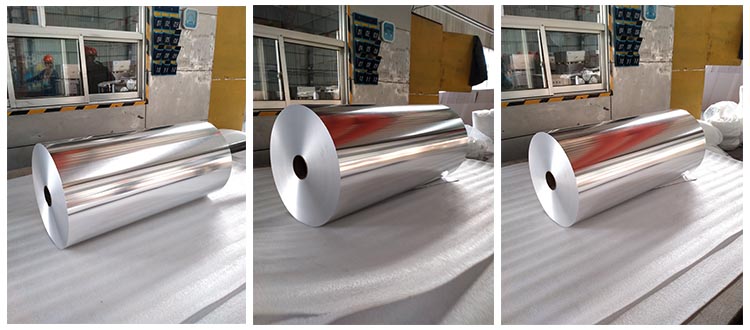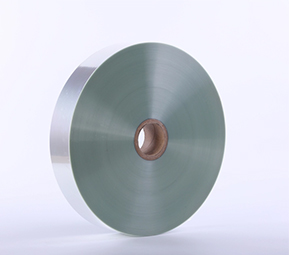 Aluminum foil 8079 DC Thickness 7 μm
Aluminum foil 8079 DC Thickness 7 μm
Hot-rolled billets are one of the two main raw materials for aluminum foil production. The characteristics of hot-rolled billets are explained in detail below:
The production process of hot-rolled blanks is: smelting-ingot casting-milling-homogenization-hot rolling-intermediate annealing-cold rolling-aluminum box blanks.
Hot rolled billet will produce more pinholes
Pinholes are the main defect of aluminum foil. Because dust in the raw material, rolling oil, or even in the air reaches 55m or more and enters the roll gap, it will cause pinholes. Therefore, it is impossible for aluminum boxes with a thickness of less than 0.006mm to have no pinholes. However, in the use of aluminum foil products, it is hoped that the number of pinholes in the aluminum foil is as small as possible.
The pinhole of aluminum foil is related to the filtration of rolling oil, rolling process conditions (tension, speed) and the roughness of the roll, but it is mainly determined by the metallurgical quality of the aluminum foil blank.

The morphology and distribution of compounds in the blank, the segregation of components in the structure, and the size of crystal grains are all factors that affect the number of pinholes. Therefore, the purification, filtration and grain refinement of the molten aluminum during the production of aluminum box blanks all help to reduce pinholes.
There are two methods for the production of air-conditioning foil aluminum, one is the hot-rolling (hot-rolling) billet method, and the other is the twin-roll casting (twin-roll casting) billet method.
The traditional hot rolling method is to cast aluminum melt DC into ingots with a thickness of several hundred millimeters. After homogenizing, finishing, heating, hot rough rolling, hot finishing rolling, etc., it is rolled to a thickness of several millimeters, and then it is cold rolled. , Aluminum foil rolling and other processes.
The casting-rolling method uses a twin-roll casting-rolling mill to directly process aluminum melt into cast-rolled coils with a thickness of 6-8mm, which can partially or completely save the hot rolling process with large investment and heavy equipment. Compared with the hot rolling method, the casting-rolling method has the advantages of low investment, high efficiency and low cost. Since it was first used in industrial production, it has been continuously promoted, improved and perfected.
Aluminium Roll Raw Material For Food Container Manufacturing In order to better use aluminum coils and extend the service life of aluminum coils, there are also strict requirements on the storage environment of aluminum coils.





